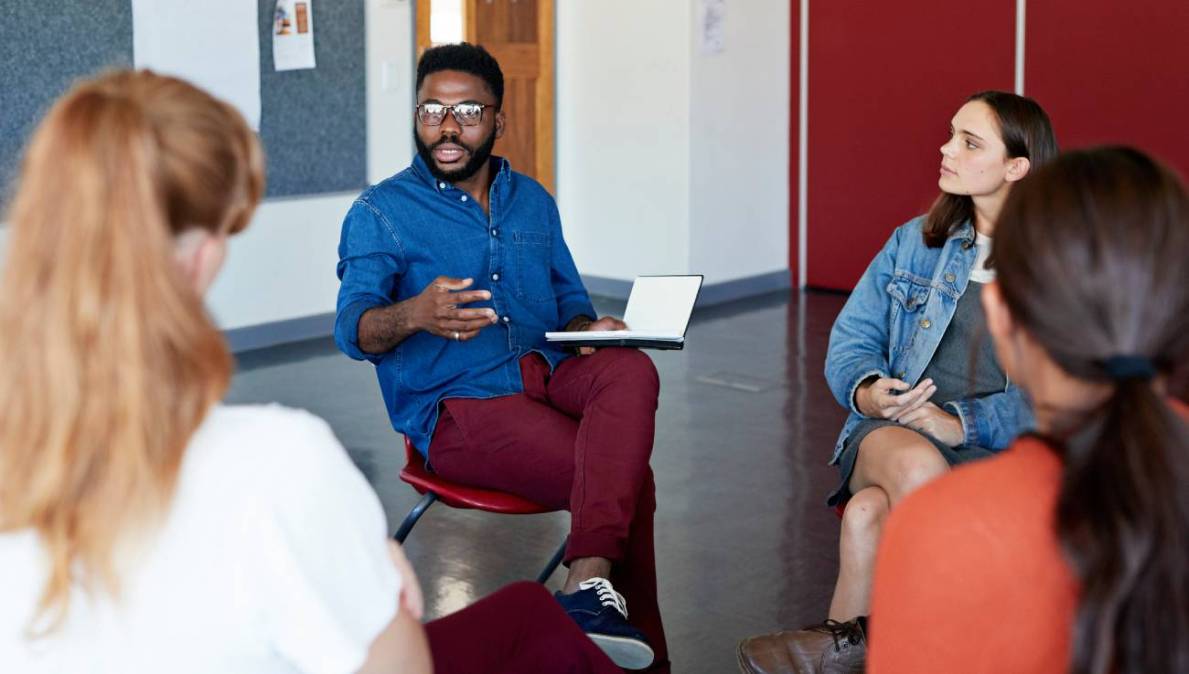How AI can humanize the teaching experience at universities

Many people choose teaching as a profession for personal reasons, like the joy of seeing sudden understanding light up a student’s face or the gratification of seeing a student overcome great difficulties in their personal life to succeed in school. Many people who feel this way about teaching worry that artificial intelligence will dehumanize their work, resulting in fewer of the magical moments that first brought them to the profession.
One surprising way generative AI can change education for the better is by creating time and space for deeper relationships between instructors and students to grow and flourish. Instructors can use generative AI as a teaching assistant to reduce the amount of time they spend on administrative and planning tasks, many of which can be completed in part or in whole using tools like ChatGPT, Claude or Gemini. Instructors can then dedicate the time they’ve saved to deepening their connections with their students, promoting more learning and finding more moments of joy and satisfaction in their work.
For example, a biology instructor who is considering using an active learning exercise but is concerned about how long it will take to plan could enter the following prompt into ChatGPT:
You are a college instructor who has 20 years of experience teaching introduction to biology for nonmajors and has won several Instructor of the Year awards. Help me develop an active learning exercise to use in class that will help students gain a deeper understanding of the way substances are transported across a cell membrane. This is an introductory course for nonmajors and I want to spend about 20 minutes on the activity.
While the content generated by generative AI tools like ChatGPT should always be considered drafts needing review and improvement, automating the process of creating first drafts can save instructors an incredible amount of time. Using the prompt would save an instructor at least half an hour.
Using generative AI as a TA can create the time and space necessary for supportive, caring relationships between instructors and students to form and develop. When an instructor who uses generative AI this way finds an extra hour in their day, this allows them to rededicate this time to the reason they likely began teaching — spending time with students individually and in small groups. These “extended office hours” sessions give instructors a chance to really get to know their students, learn about their interests and struggles outside the classroom and help them with challenges they are having in class.
And it works — two academic researchers in California found in 2013 that attending office hours is positively correlated with academic success in political science courses. Improving student success is especially important for those who are judged primarily on the quality of their teaching — as opposed to their publication or grant record — like many faculty at two-year institutions.
AI has other instructional uses, too — it could quickly group students into small clusters based on common misunderstandings evidenced in their work, and even draft the emails instructors could use to invite students to these small-group sessions.
For example, AI could analyze all the essays written by students for a composition course assignment, identify major issues students are struggling with and build lists of students struggling with each issue. AI could then draft emails for each group and invite them to special group office hours sessions. Here, AI is not only saving the instructor time, it’s providing actionable information and support.
Generative AI has incredible potential for decreasing the amount of time instructors spend on administrative tasks, allowing them to invest this time in building stronger relationships with their students. This change will improve instructors’ quality of life, since it allows them to engage more frequently in the activities that drew them to teaching in the first place. The change will also greatly benefit students, as numerous studies have shown that positive teacher-student relationships have a significant impact on student learning, particularly for at-risk students.
AI has the potential to enable unprecedented learning for all students. I’m currently exploring ways of utilizing AI to further my organization’s work and commitment to equity. I encourage other organizations to do the same.
This article is an opinionated submission from a contributor and does not reflect the opinions of Scoop News Group.




